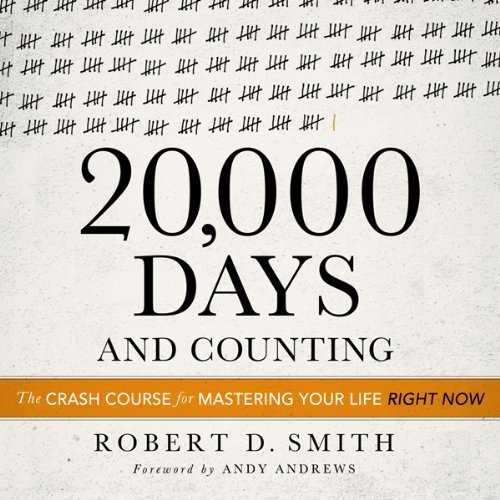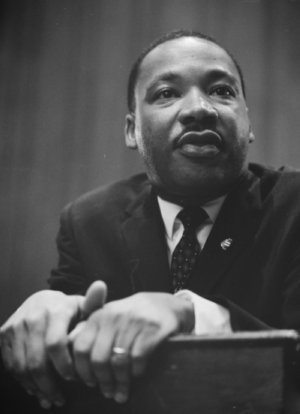Jeff Goins's Blog, page 84
January 23, 2013
Keep Dreaming… Even When They Think You’re Nuts
Your dreams might scare people. Your passion might overwhelm those who have yet to journey into the realm of possibility. Your huge heart, courageous words, and wild life may cause others to gawk and point.
And this is exactly where you want to be.

Photo Credit: Bhumika.B via Compfight cc
If onlookers are not saying, “You’re nuts!” then your dreams may need a booster shot.
Those who will try to stop you (are the ones you’d least expect)
In CS Lewis’ The Lion, the Witch and The Wardrobe, the youngest sister, Lucy, showed the greatest courage, but all her older siblings tried to stifle it. This is the way the world works.
In the Bible, Joseph shared his dream with his brothers, and what did they do? They “graciously” threw him into a well, leaving him for dead.
And how about these dreamers — how were they received? Abraham Lincoln and his “ridiculous” mission to abolish slavery? David and his “pebble” as he faced the giant? Tim Tebow and his “self-promoting” football career?
These are world changers and game players. They showed up, gave all they had, and put it on the line in spite of the nay-sayers and finger-pointers.
And despite all setbacks, they leaped for their dreams.
How I took the leap
Sometimes, my dreams scare me. Sometimes, I hear in my own head a voice saying, “Yes Jenny, you ARE nuts!”
But somewhere, I crossed the line of comfort, ease, and predictability and chose to live a bigger life.
There is more here, and I will give each day, everything I have, and not look back. (Okay, I have looked back, and I’ve even listened to some of the voices in the crowd, and I bounce back a whole lot faster than I used to).
We chose adoption even though we already had three biological children. It was risky and began as foster care, so we didn’t even know if they would be “ours” or not. But we felt called, so we took the risk anyway, despite the voices of opposition:
“They already have three biological kids!”
“Why on Earth would they bring kids with ‘issues’ into their home?”
“Three year-old twins… seriously?!”
This month, our twins — yes, our twins — celebrate their eighth birthday this month, and their third year of adoption into our family.
The lesson? Risk pays, and it costs. But it’s always worth it.
The risk of sharing your story
We decided to share our stories, three of us from very different backgrounds: a pastor’s wife, an ex-convict and former addict, a small business entrepreneur.
We risked by telling more than many were comfortable with, by “airing our dirty laundry.” We started a blog and life coaching business. And again the naysayers’ voices rang out:
“Can’t you keep that stuff quiet?”
“Do you really need to be so honest, so open?”
“No one wants to hear about your addiction, abortion, or abuse.”
We chose to write a book, the story of identical twins — one caught in addiction and the other trying to save her.
We chose to enlarge our circle of influence. The other day, we spoke with a man who asked us to speak at a four-day conference next year — in Africa! All because we hung our laundry out where others could see it, and we didn’t worry about what they’d think.
We stepped into our dreams and believed that by living in more boldness, that even more would show up. And it has. And it will.
Don’t listen to the voices telling you no
So when they point their fingers at you, the game players and world changers that you are, do this:
Choose more joy and less fear.
Choose deeper passion and less discouragement.
Choose bigger dreams and less complacency.
And when they don’t understand, live in the truth, and hope that one day, they too will take their dreams off the shelf and join you. You never know what you might start.
For more about Jenny, check out Everyday Lifeline, where you can find out more about upcoming events including UNLEASHED where I (Jeff) will be speaking on April 19–20.
What helps you hold fast to your dreams when opposition comes your way? Share in the comments.
Disclosure: Some of the above links (just the book links) are affiliate links, which means I make a small commission if you buy one of those books.

January 21, 2013
The Importance of Numbering Your Days: An Interview with Robert D. Smith
Chances are you’ve not heard of Robert D. Smith — and that’s a problem. Because everyone who’s ever met Robert agrees he’s a well-kept secret. And today, we’re going to hear from him and why he numbers each and every day of his life.

20,000 Days & Counting by Robert D. Smith
In this interview, I talk with Robert about his first book, 20,000 Days and Counting, and why we all need to be more aware of how many days we’ve lived. (Keep reading to find out how you can win a free copy of Robert’s book.)
Listen to the interview
Download: Robert%20D.%20Smith%20on%202012-12-07%20at%2013.08.mp3
Click here to download the MP3.
About THE Robert D.

THE Robert D.
Several months ago, Robert invited me to come visit him at his “office.” When I pulled into a residential driveway and entered a house full of people, I wondered if I was in the right place. There were candy jars in every room.
As we got to talking, I was immediately struck by the way Robert lives his life. He’s someone who soaks up every moment and inspires those around him to do the same.
The reason you don’t know this man is because for the past 30 years, he’s been the guy behind the success of best-selling authors and speakers like Andy Andrews. And that anonymity was just fine by him, until recently when he felt compelled to write a book.
The book, as you’ll hear in the interview, came about when Robert realized he was about to live his 20,000th day — and almost missed it. This was a sobering realization, and what he did next changed the way he approached every day after.
What we talk about in the interview
In this interview, Robert, and I discuss:
How many days you’ve lived and why it matters
The reason you should always eat dessert first
How Robert helped Andy Andrews become a New York Times best-selling author and sought-after public speaker
Why failure isn’t as bad as you fear
How everyone has a brand (even writers)
What rejection tastes like (since Robert eats it for breakfast every day)
Number your days (and win a free book!)
Realizing our lives are comprised of actual days helps us understand how real change happens — slowly and intentionally — and how every day is an opportunity to do something extraordinary.
If you’ve never counted the days you’ve been alive, doing so just might change your life, like it did for Robert.
If you want to learn to number your days and are interested in winning a free copy of Robert’s book, here’s what you need to do:
Go here to calculate how many days you’ve been alive. (Example: I’ve been alive for 10,889 days.)
Leave a comment here with the answer, along with an answer to the question below.
Share this article on Twitter, Facebook, or the social network of your choice.
Wait patiently while I pick five random winners in the next 24 hours (winners will be chosen by 9am, Jan. 22, 2013 and contacted via email).
How many days have you been alive, and how are you going to make today extraordinary? Share in the comments.
Disclosure: Some of the above links are affiliate links.

January 20, 2013
5 Lessons from MLK on Living, Leading, & Communicating

Photo credit: Mike Licht (Creative Commons)
Martin Luther King, Jr. left us a legacy. He taught us as much through what he did as through what he said. Maybe more.
One of the many lessons Dr. King exemplified was the effectiveness of a life lived out loud — one in which a person’s words are backed by considerable action.
He showed us our lives must be lived intentionally and without regret, that our words mean something and we must speak up in the face of injustice.
He taught us that it is one thing to say you have an idea and quite another to act on it. The man’s courage still inspires millions of people today.
I’m glad Dr. King spoke up — and then acted. We are all better for it.
Here are several lessons we learn from this pioneer of civil rights (all quotes from Dr. King):
Speak with conviction
Cowardice asks the question, is it safe? Expediency ask the question, is it politic? Vanity asks the question, is it popular? But conscience ask the question, is it right? And there comes a time when we must take a position that is neither safe, nor politic, nor popular, but one must take it because it is right.
Words ring hollow when you declare something with wavering, weak words.
When your message lacks conviction, we notice. It would be better for you to say nothing than to mutter a few wimpy phrases followed by parenthetical caveats and exceptions.
MLK never spoke like this. He understood that if you are going to change things, you will need to be bold. Your words, as well as your life, will have to reflect this.
In life, you may have to say something that is hard. You may be required to challenge the status quo or even hurt someone’s feelings — not intentionally, of course, but because not doing so would be a disservice to the truth.
So when that time comes, be absolutely sure of what you say before you say it. And then, say it. With boldness and conviction, as well as sensitivity and grace. But make no mistake: You must speak up. No pussyfooting about it.
Our stories are intertwined
All I’m saying is simply this, that all life is interrelated, that somehow we’re caught in an inescapable network of mutuality tied in a single garment of destiny. Whatever affects one directly affects all indirectly.
We cannot attempt to live — or tell — a compelling story without being conscious of others. Everything we do is affected by and has an effect on other people. We are in this together.
Until we realize this, we are not living to our fullest potential. We are, instead, aimlessly and irresponsibly wandering like adolescents.
Until we start telling stories that unfold symbiotically, we are not telling truth. We are simply reciting fairy tales. We need more honest stories that call us into a deeper reality. This is where we all long to live, isn’t it? It all begins withe compassion.
Telling the truth is dangerous
In the end, we will remember not the words of our enemies, but the silence of our friends.
There is nothing safe about being honest, nothing comfortable about doing the right thing. If anything, when you are committed to saying what needs to be said, it will likely get you into trouble.
But the fruit of the message is often worth the pain.
You’re the one who has to decide this, though. Choose wisely before opening your mouth, and be aware of the consequences. Because as with MLK, this may cost you your life.
Of course, if you don’t speak, it could cost you something far greater.
Your goal should never be popularity
A genuine leader is not a searcher for consensus but a molder of consensus.
It is a dangerous thing to strive for the popular vote.
As a communicator and leader, you will be asked to compromise all kinds of values to please others. Sometimes, this is good; it teaches you flexibility and humility. But the practice of consensus-building can be very, very bad.
Steven Jobs showed us this: People don’t know what they want or need until you show it to them.
If you are offering a new paradigm, you cannot assume the masses will know or care what you’re talking about. You have to show your audience the Promised Land before they’ll want to go there themselves. And you can use this information to coerce people or help them — it’s up to you.
Whatever you do, beware the temptations of flattery. If all you’re doing is following the status quo, you’re neither leading nor communicating. And you’re hardly living. You’re entertaining.
The first person you need to convince is yourself
Faith is taking the first step even when you don’t see the whole staircase.
MLK often spoke about the importance of believing in yourself before trying to convince others to do so. He knew that if we doubt ourselves, so will others.
He also knew human beings cannot act according to their identity until they believe it about themselves. In the field of creative disciplines, we see this to be especially true: “A writer is a writer when he says he is,” says Steven Pressfield. There’s something about the power of declaration via our voices that forces our hands to act.
This may be the most important lesson Dr. King taught us: we are what we are when we decide to be it. May we honor his memory today by boldly being and believing who we are.
If you can’t see the video in your email or RSS feed, click here to watch it.
What lessons have you learned from the life and legacy of MLK? Share in the comments.

January 18, 2013
Everyone Should Start an Online Business (or How You Can Be Your Own Patron)
Most people I talk to are at least a little curious (and sometimes equally skeptical) about the idea of starting an online business. But they don’t know where to go from there.

Photo Credit: Stuck in Customs via Compfight cc
For the longest time, I avoided this whole world, because it sounded sketchy (and a lot of it was). But when I launched my own business, what I found out about making money online surprised me. Here’s what I learned:
You don’t have to over-crowd your website with ugly pop-up ads that attack the user.
You don’t have to turn into a used car salesman with slicked-back, greasy hair, hawking useless products at people who don’t want them.
You don’t have to spam people to death and sell your soul to the Devil just to make a buck (promise).
Does this sound like you?
I have a missionary friend who doesn’t make enough money to save up in case of an emergency. If she ever gets in a minor car accident, her life will be very difficult. She calls it living by faith; I call it scary.
My younger sister just graduated from college and is having trouble entering a crowded market in the process of downsizing. She feels stuck.
My wife and I know a couple who are adopting a child from Uganda (which is expensive), and they’re trying to find ways to make some side income online. But they’re not exactly sure where they’re going to get all that cash.
And of course, I have a TON of writer and artist friends who are working a day job, while waiting to be picked to publish their book or hired by a company to finance their dreams… some day. In the meantime, they’re growing frustrated.
What are these people supposed to do? Start an online business.
Why an online business?
Three reasons: It’s cheap, it’s simple, and it’s profitable.
Look, I’m not going to tell you starting a business is easy — it’s not. But it’s easier than it’s ever been.
In the old days, if you wanted to be an entrepreneur (which literally means “risk-taker”), you had to take a lot of risks (duh). You’d have to buy or rent office space, raise some capital (i.e. go into debt), hire a bunch of staff, and hope for the best.
In those days, I never would’ve wanted to start a business. I never would’ve been able. But the reality is now you can start a business for around $100 (just ask Chris Guillebeau).
What it really costs
If you want to start an online business, here’s what it’ll cost you:
$10/year to buy a domain name (e.g. goinswriter.com)
$5/month for web hosting
$0 to download WordPress (website-building software)
$0 to install a free design theme for your blog/website
$5/month for an online shopping cart (to sell stuff)
$0 to accept purchases through Paypal
$0 to start an email newsletter
If my math is correct, that’s around $130 — for the year. My dad runs a hole-in-the-wall restaurant with dirt-cheap rent, and he pays over 20 times that (it’s not as much as it sounds).
Yes, as you grow your business, the expenses can rack up but so will the revenue. The point is that it’s VERY cheap to start. And that’s the hardest part of anything: getting going in the first place.
So basically, all you have to do to succeed is make your first hundred bucks (to make back your investment), and the rest is profit. No investors, no debt, no problem. All it takes is time and energy.
“But I’m an artist…”
Right. You’re an artist. Like Hemingway. Like da Vinci. Like thousands who have come before you… and starved. Unless they had a patron. Someone who would pay their bills so they could create their art.
But here’s the thing: There are no more patrons. Not really. No one’s going to give you a heap of money for your genius. No publisher is going to buy your manuscript for a million dollars. It’s not going to happen.
That patron? It’s going to have to be you. The best part is we live in an age when this has never been easier.
Yes, easy. Compared to the Renaissance and the Roaring Twenties and even the late 80s when publishers were doling out six-figure advances to first-time authors, it’s easy to finance your own calling. You just have to have some guts.
Of course, starting a business will take work and time, but it is possible (and quite cheap). Which is what make this whole thing remarkable: Anyone who wants to do it, can do it.
And that, as per usual, is the really scary part. Because now it’s up to you.
If this idea of launching an online business is compelling to you, check out the live replay of the webinar I did with Danny Iny yesterday. It’ll be playing Jan. 19, 2013 at 11am and 5pm EST. Click here to register for free.
Have you ever thought of launching an online business? What’s stopped you? Share in the comments.

Everyone Should Start an Online Business (or How You Can Your Own Patron)
Most people I talk to are at least a little curious (and sometimes equally skeptical) about the idea of starting an online business. But they don’t know where to go from there.

Photo Credit: Stuck in Customs via Compfight cc
For the longest time, I avoided this whole world, because it sounded sketchy (and a lot of what I was seeing was). But here’s what I learned about making money online:
You don’t have to crowd your website with ugly ads.
You don’t have to turn into a used car salesman with slicked-back, greasy hair, hawking useless products at people who don’t want them.
You don’t have to spam people to death and sell your soul to the Devil (promise).
Does this sound like you?
I have a missionary friend (many, in fact) who doesn’t make enough money to save up in case of an emergency. If she ever gets in a minor car accident, her life will be very, very difficult. Scary.
My younger sister just graduated from college and is having trouble entering a crowded market that’s downsizing. What’s she supposed to do?
My wife and I know a couple who’s adopting a kid from Uganda (which is expensive) and are trying to find ways to make some side income online to help supplement their income.
And of course, I have a TON of writer and artist friends who are working a day job while waiting to be picked to publish a book or hired to pursue their dream… some day.
What are these people supposed to do? Start an online business.
Why an online business?
Three reasons: It’s cheap, it’s simple, and it’s profitable.
Look, I’m not going to tell you that starting a business is easy — it’s not. But it’s easier than it’s ever been before.
In the old days, if you wanted to be an entrepreneur (which literally means “risk-taker”), you had to take a lot of risks. You’d have to get some real estate (even if it meant renting an office), raise some capital (i.e. go into debt), hire a bunch of staff, and hope for the best.
In the old days, I never would’ve wanted to start a business. I never would’ve been able to do it. But the reality is you can start up a business for around $100 (just ask Chris Guillebeau).
What it really costs
If you want to start an online business, here’s what it’ll cost you:
$10/year to buy a domain name (e.g. goinswriter.com)
$5/month for web hosting
$0 to download WordPress (website-building software)
$0 to install a free design theme for your blog/website
$5/month for an online shopping cart (to sell stuff)
$0 to accept purchases through Paypal
$0 to start an email newsletter
If my math is correct, that’s around $130 — for the year. My dad runs a hole-in-the-wall restaurant with dirt-cheap rent, and he pays over 20 times that (not as much as it sounds).
So basically, all you have to do is make a hundred bucks and the rest is almost pure profit. No investors, no debt, no problem. Really, all it takes is some time and energy. (Caveat: Yes, as you grow and scale the expenses can rack up, but so will the revenue. The point is it’s VERY cheap to start.)
“But I’m an artist…”
Right. You’re an artist. Like Hemingway. Like da Vinci. Like thousands who have come before you… and starved. Unless they had a patron. Someone who would pay their bills so they could create their art.
But here’s the thing: There are no more patrons. Not really. No one’s going to give you a heap of money for your genius. No publisher is going to buy your manuscript for a million dollars. It’s not going to happen.
That patron? It’s going to have to be you. And the best part is we live in an age when this has never been easier. Yes, easy. Compared to the Renaissance and the Roaring Twenties and even the late 80s when publishers were doling out six-figure advances to first-time authors, it’s easy to finance your own calling.
It will take work and cost you time, but it is possible (and quite cheap as I illustrate above). Frankly, anyone who wants to do this, who’s thinking about it or dreaming about it, can do it. And that, as per usual, is the really scary part.
Because now it’s up to you.
If this idea of launching an online business is compelling to you, check out the live replay of the webinar I did with Danny Iny yesterday. It’ll be playing Jan. 19, 2013 at 3pm EST. Click here to register for free.
Have you ever thought of launching an online business? What’s stopped you? Share in the comments.

January 16, 2013
Writing Tips from an Idiot
I grew up in an urban neighborhood rich with culture and diversity. And although I was surrounded with unique educational opportunities, part of me struggled to learn.

Photo Credit: Lord Jim via Compfight cc
As a little girl, I attended a public school that pioneered a guinea pig program called Individual Education (I.E.). This program was based on an educational philosophy that focused not only on academics but on creativity and counseling.
We did traditional academics in the morning, then courses like poetry, square dancing, and pottery in the afternoon. If you could dream it, my school would help you create it.
At the time, I didn’t know my school was different. I didn’t know other schools gave letter grades while mine only gave “pass” or “fail.” I thought everyone called their teachers by their first names.
Even though I was in remedial reading and writing classes and struggled with traditional academics, I excelled in the creative ones. I loved any course that involved dancing, acting, and storytelling — as long as I could read my own writing out loud.
When things started to change…
I’ll never forget eighth grade. My family had to move, which meant I was no longer allowed to attend the I.E. side of my middle school. I was now on the standard education side, which offered, in exchange for letter grades, little opportunity to be creative.
I was a C student — a C student full of ideas and dreams but struggling with a learning disability that left me for the next several years running away from a passion to create.
I was a C student who feared being made fun of due to my inability to spell. My high school English teacher even called me a “writing idiot,” which traumatized me.
In fact, I chose to graduate from high school a semester early so I wouldn’t have to turn in my handwritten senior English research project.
Then, in 1997, two miracles happened:
The first came when I discovered Microsoft Word, a program that allowed my dyslexic mind to write the words I’d always wanted to write but couldn’t.
The second came when I met Sister Mary-Margaret, my writing professor at college. She recognized my learning disability and challenged me to look past it.
Sister Mary-Margaret unearthed a passion to write creatively and restored a belief in myself that I’d lost so many years ago. She once said to me, “If you’re willing to do the hard work, you have the opportunity to be a brilliant writer.”
I had never heard that before. It opened up my heart to new possibilities. This once-C student could become a straight-A student, if she wanted, even make the Dean’s list. And that’s just what I did.
Sharing my story to inspire others
Even after I started exercising my creative gift, I never thought I’d use my writing to inspire others. But Sister Mary-Margaret saw something in me that took me years to recognize.
And in 2009, my husband Justin and I started a blog simply out of a desire to share our story. We wrote words to bring hope and restore relationships. Our lives and marriage had nearly been ruined by an affair, and we wanted to help others work through similar issues.
We had no idea if people would read what we had to say, but we felt compelled to write, anyway.
Three years later, what started as a blog has now become a ministry that reaches people all over the world, helping them reconcile their marriages. And just this month, we released our very first book.
Yes, this spelling-challenged, dyslexic “writing idiot” co-wrote a book with her husband. A book full of words that has helped us express our journey of redemption, grace, and forgiveness. And hopefully, it’ll help others walk a similar path.
Who would’ve ever thought it could happen? Not me. And certainly not my high school English teacher. But one person: Sister Mary-Margaret. She saw it from the beginning.
If you’re struggling to step into your calling, I pray you’re fortunate enough (as I was) to find a Sister Mary-Margaret in your life — someone to encourage and challenge you to be who you are, regardless of the fears and disabilities you might be facing. And I hope you lean into those words of wisdom and encouragement and begin your journey.
If you aspire to write, as I did, it’s my prayer that you’re able to look beyond what’s holding you back, believe you have what it takes, and embrace the fact that your words have power.
Who or what is holding you back from writing? Share in the comments.

January 14, 2013
Do the Little Things in Life (Like Typos) Really Matter?
 Last night, I signed in to Facebook to see this hilarious, but serious, advertisement in my feed.
Last night, I signed in to Facebook to see this hilarious, but serious, advertisement in my feed.
Under the image, there was a debate about whether or not we should care about “little things” like typos.
One group of people said they didn’t mind the typo and that it wouldn’t affect their purchasing decisions. And the other (of which I was a part) was outraged.
The person responsible for the ad said he was aware of the typo (there are actually two — bonus points if you can find them both), but it would take 10 minutes to fix. So he wasn’t going to bother. Plus, the ad was converting just fine — no need to change a thing, he said.
This raises an important question: What really matters?
Do typos matter?
Does doing your best work, even when no one notices, matter?
Does the work you do in the dark that you may never get credit for matter? (You can see where I’m going with this.)
Here’s the truth: If what you do is merely a means to an end, then how you work is irrelevant. All that matters is the outcome. But maybe that’s not all there is to consider.
If you steal a scene from a movie for your memoir, it doesn’t matter that it didn’t happen, does it? What matters is whether or not the book sells… right?
If you beat and shame your kids into compliance — and as a result, they become well behaved — then you’re in the clear. You’re an “effective” parent… aren’t you?
And if the way you sell stuff to your audience insults their intelligence but allows you to meet your bottom line, don’t worry about “little things” like trust and permission. After all, this is marketing, not English class… so who cares?
Certainly, there are successes to be made with this kind of thinking, but there’s also a cost. And for those of us who care, who believe how we do something is as important as what we do, it may not be worth paying. (I personally don’t think it is.)
The alternative is to care about everything, which is hard but important. It requires the audacious belief that everything we do matters, even the little things like watching typos and paying our taxes and not cheating our employers out of a few hours of work.
And who has time to worry about those things? We’ve got stuff to sell… right?
What do you think? Share in the comments.
For what it’s worth: If you want to build a platform, the little (but intentional) things are what matter most. Success, in my experience, is more about habits than big breaks. I talk more about that in this interview.

January 11, 2013
This Might Not Work: A Conversation with Seth Godin About Art
It’s not every day that you get to interview one of your heroes. In this conversation with the inimitable Seth Godin, I got to do just that. For 34 minutes, we talk about art, fear, and making a ruckus. It was a lot of fun.

The one and only Seth Godin
Listen to the interview
Download: Seth%20Godin%20Art.mp3
Click here download the MP3.
(Many thanks to Andy Traub for helping me clean up the audio.)
Icarus, art, and the lies we believe
The excuse for the interview was Seth’s new book, The Icarus Deception, which is about how we’ve been deceived into settling for less than we should. It’s a call to resist the model of the factory and create connections that matter.
In our talk, he mentions artists like Amanda Palmer, who raised over a million dollars on Kickstarter, and Shepard Fairey, whose once-free graffiti art now goes for tens of thousands of dollars. Each is an example of generosity, creativity, and how the world rewards art.
I also took this opportunity to ask Seth some things I’ve always wanted to ask (even taking a few questions from the audience). I hope you enjoy our conversation.
Interview highlights
In this interview (which you can listen to by clicking the player button above or by downloading the MP3), we talk about:
Why Seth launched his most recent project via Kickstarter
What he’s afraid of (yes, he actually has fears)
Why generosity wins (and where it comes from)
The book he’d recommend to his younger self
Whether or not artists should get paid for their work (and exactly how that works)
What makes Seth Godin go, “Sheesh!”
The name of his upcoming boy band (honest)
Memorable quotes
“We can’t have an art factory.” [Tweet]
“We don’t reward people who are wandering generalities.” [Tweet]
“Knowing where things are is worth more than the things themselves.” [Tweet]
“The only thing we want to connect to is art.” [Tweet]
“We have been brainwashed into flying too low.” [Tweet]
“I’m better off shipping than I am making it perfect.” [Tweet]
“The reason we read our reviews on Amazon is to beat ourselves up and to hide.” [Tweet]
“If I’m not saying to myself, ‘This might not work’ … then I haven’t pushed myself hard enough.” [Tweet]
Seth’s new book(s)
Seth actually has three new books out (one is a manifesto, another a companion piece, and the third a collection of blog posts). They are:
The Icarus Deception
V Is for Vulnerable
Whatcha Gonna Do with That Duck?

Seth’s new books
I bought each of these and love them. I encourage you to do the same. However, because I love the work that Seth does so much, I also want to give one away. Here’s how it’ll work:
Leave a comment on this post, answering the question below.
Share this post via Twitter or Facebook.
Check your email in 24 hours. If you win, I’ll contact you and give you the choice of which book you’d like. Then I’ll buy it for you.
What’s something you’ve created that you weren’t sure would work? Share in the comments.
Addendum: Years ago, Seth reached out to me to ask if I would about his book Linchpin . I don’t know what compelled him to do that, other than we had been emailing for a few years, but I’m grateful. Also, more interviews here.
Update: The contest is now over. Congrats to Ben Dempsey for winning the free book!
Disclosure: Some of the above links are affiliate links.

This Might Not Work: A Conversation with Seth Godin about Art
It’s not every day you get to interview one of your heroes. In this conversation with the inimitable Seth Godin, I got to do just that. For 34 minutes, we talk about art, fear, and making a ruckus. It’s a lot of fun.

The one and only Seth Godin
Listen to the interview
Download: Seth%20Godin%20Art.mp3
Click here download the MP3.
Icarus, art, and the lies we believe
The excuse for the interview was Seth’s new book, The Icarus Deception, which is about how we’ve been deceived into settling for less than we should. It’s a call to resist the model of the factory and create connections that matter.
In our talk, he mentions case studies like Amanda Palmer, who raised over a million dollars on Kickstarter, and Shepard Fairey, whose once-free graffiti art now goes for tens of thousands of dollars. Each is an example of generosity, creativity, and how the world rewards art.
I also took this opportunity to ask Seth everything I’ve ever wanted to (even taking a few questions from the audience). I hope you enjoy our conversation.
Interview highlights
In this interview, we talk about:
Why Seth launched his most recent project via Kickstarter
What he’s afraid of (yes, he actually has fears)
Why generosity wins (and where it comes from)
The book he’d recommend to his younger self
Whether or not artists should get paid for their work (and exactly how that works)
What makes Seth Godin go, “Sheesh!” (it might surprise you)
The name of his upcoming boy band (honest)
Tweetable quotes
“We can’t have an art factory.”
“We don’t reward people who are wandering generalities.”
“Knowing where things are is worth more than the things themselves.”
“The only thing we want to connect to is art.”
“We have been brainwashed into flying too low.”
“I’m better off shipping than I am making it perfect.”
“The reason we read our reviews on Amazon is to beat ourselves up and to hide.”
“If I’m not saying to myself, ‘This might not work’ … then I haven’t pushed myself hard enough.”
Seth’s new books
Seth actually has three new books out (one is a manifesto, another a companion piece, and the third a collection of blog posts). They are:
The Icarus Deception
V Is for Vulnerable
Whatcha Gonna Do with That Duck?

Seth’s new books
I bought each of these and love them. I encourage you to do the same. However, because I love the work that Seth does so much, I also want to give one away. Here’s how it’ll work:
Leave a comment on this post, answering the question below.
Share this post via Twitter or Facebook.
Check your email in 24 hours. I’ll contact you if you win and give you the choice of a book. And then I’ll buy it for you.
What’s something you’ve created that you weren’t sure would work? Share in the comments.
Random fun fact: Years ago, Seth reached out to me to ask if I would when his book Linchpin came out. I honestly don’t know what compelled him to do that, other than I had been emailing him for a few years at that point.

When You Don’t Have a Cabin or a Dog… But Are Still Called to Write
Most days, I hated writing my book.
The process felt torturous, and at the end of six months (the time I was given to complete my manuscript), I hated book writing and never wanted to do it again.

Photo credit: Al_HikesAZ (Creative Commons)
Let me back up for a minute…
I always thought that writing a book would consist of long winter days in a cabin by a fire with a dog.
Cliché, I know.
I also thought it would take a year or two to write a book. You know, really take the time to figure out your words and your story and what you want to say. I wanted time and the space to create something brilliant, something lovely, something masterful.
And then I came back to reality, broke up a fight, fed someone, and cried.
Writing in the real world
First of all, I didn’t have two years to create a masterpiece; I had six months. Second, I had three little kids that depended on me to feed them, bathe them, teach them, and be mindful of the fact that they didn’t like me being on the computer too much.
Also, by the time they went to bed around 8pm, I was exhausted, and the last thing I wanted to do was write. Oh, and there was that husband that didn’t want to be neglected.
Ah, life. It just doesn’t fit neatly in a box with a perfectly placed bow, does it?
Yet, we still write. Or paint or sing or dance or craft or start a business or play a sport. We still dream. We still do what we were created to do, because we can’t help it, it’s in our blood; it’s in our soul.
But how, how do we do the thing we are compelled to do when life intervenes with a million distractions? How to we write between jobs and bedtimes? How do we write without the cabin and the dog?
Accept your limitations
Face it: You probably will not have months of solitary time and a “just-right” atmosphere to create. You might have extremely limited time to do the thing you want to do. You might have other priorities that come before your dream.
Instead of feeling sorry for yourself or comparing yourself with others or resenting your limitations, accept them. Work around them the best you can, but whatever you do, keep working.
When writing my book, I only had two days a week to write, realistically. Sure, I could have got up at 5 am, but it wouldn’t have been productive because my brain doesn’t wake up until 10am.
Everyone has limitations. Don’t beat yourself up, and don’t quit.
Fight for it
Yes, you have limitations. But so what?! Who doesn’t have them?
If you want to create, you have to fight for your passion. You must give your soul the space, even if just in bits, to do what it needs to do.
Fight for the time, no matter how limited, and the love of what you’re called to do. And then do the work.
Give up on “perfect”
I had to give up on writing my masterpiece. There just wasn’t the time or brain power in this season of my life.
So be it.
Maybe one day, when my babies are grown and I have some money saved up, I can go to a cabin and write for days on end. With a dog. And a roaring fire.
But until then, I’m okay with less-than-perfect. I’ll do my best with what I have, and then let it go. And so should you.
Let yourself go
Speaking of letting go, you won’t be free to give of yourself in your art if you are constantly critiquing yourself. Yes — improve, read, learn, and aim for excellence; but then let yourself go and be who you are.
Be heard with the voice you were given, and speak the words you were meant to speak. Be you, only you. Push out the voices that say you aren’t good enough, and enjoy who you are.
If you have a message or an idea to share with the world, share it. And do it the only way that really matters — with all of who you are.
Back to the torture of writing my book…
Significant time has passed since turning in my manuscript, and I feel like I finally want to write again. I am a writer and a message maker, and I can’t help but create. So I will.
But I will take my own advice next time and accept my limitations, fight for the space I need to write well, give up on perfect, and enjoy the process by being me, by letting myself go.
I will accept who I was made to be, and I will write because my soul tells me to.
What is in your soul to create? Are you called to write? What is stopping you from doing it? Share in the comments.
Sarah Mae’s book (that she hated writing), Desperate, just released this week. Find it wherever books are sold and check out the amazing gifts and giveaways that are happening.




